USJ FBL Day 2025 Highlights Greater Bay Area cases for Transformative Partnerships for Sustainable Urban Renewal and ESG
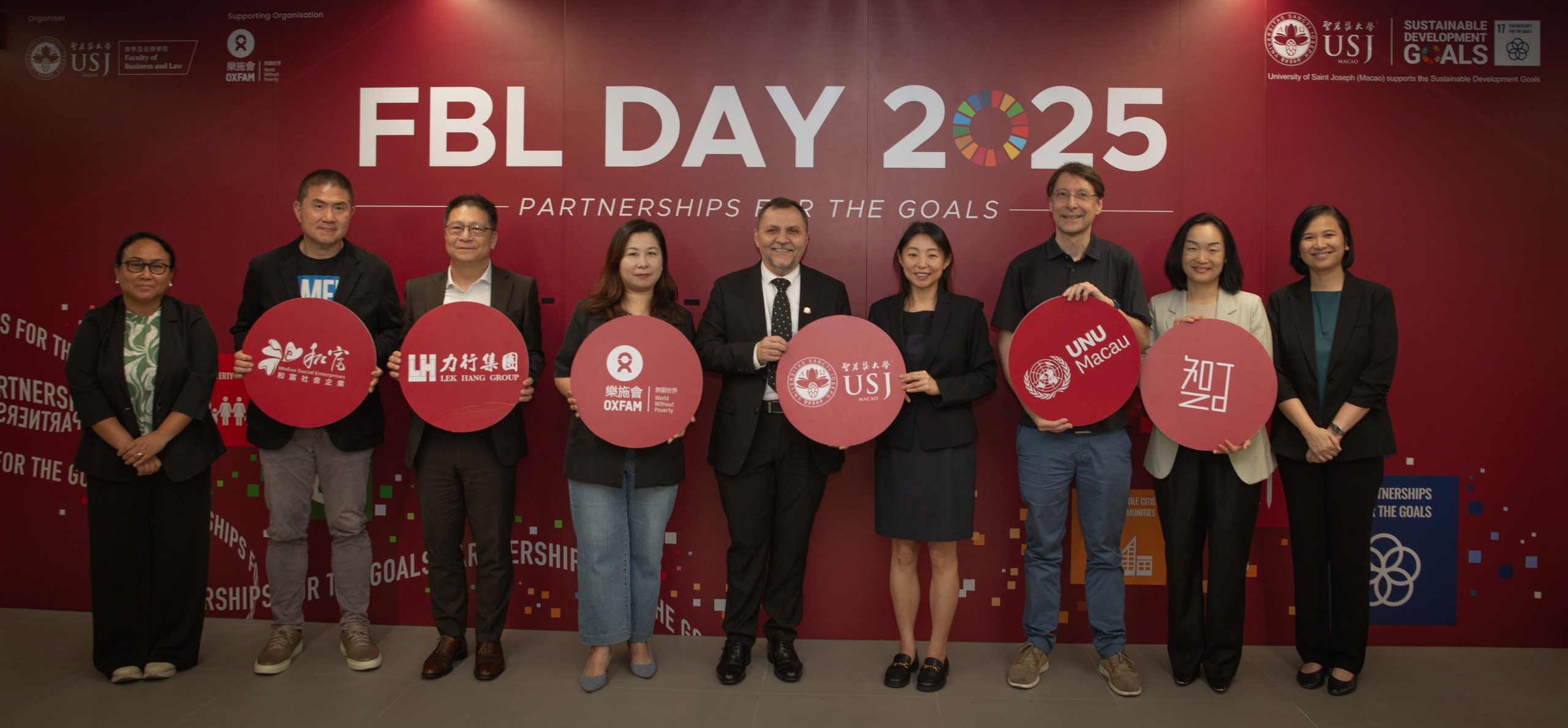
USJ FBL Day 2025 Highlights Greater Bay Area cases for Transformative Partnerships for Sustainable Urban Renewal and ESG
08
Apr
08/04/2025
This year’s FBL Day showcased groundbreaking projects in urban renewal, AI-driven equity, and social innovation, aligning with the United Nations Sustainable Development Goals (SDGs).
The Faculty of Business and Law (FBL) at the University of Saint Joseph (USJ) hosted the FBL Day 2025: “Partnerships for the Goals” on the 28th March 2025, at the Kent Wong Gallery, bringing together industry leaders, social entrepreneurs, researchers and students to explore collaborative solutions for sustainable development. The event showcased groundbreaking projects in urban renewal, AI-driven equity, and social innovation, aligning with the United Nations Sustainable Development Goals (SDGs).
This year marks the 5th USJ FBL Day and it was organised by Year 4 students of the Business Administration Programme (BBA) and supported by Oxfam in Macao. The event invited expert sharing from the United Nations University in Macao, Wofoo Social Innovation Through Entrepreneurship Programme in Hong Kong, Lek Hang Group and Zhicai Innovation Research Institute from Foshan and was attended by over 150 university students from Hong Kong and Macao.
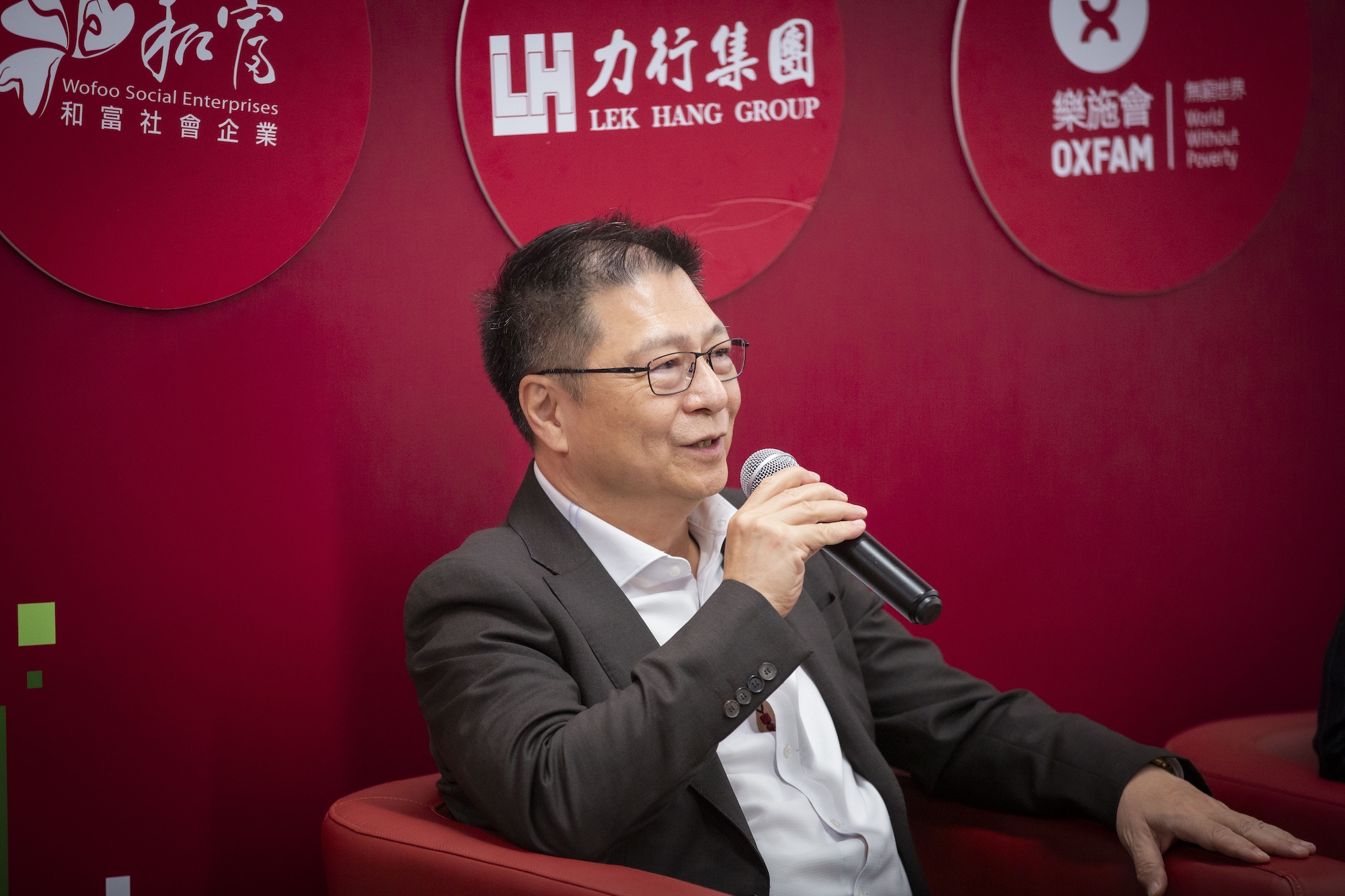
Revitalizing Heritage: The New Hotel Central Project
Mr. Sio Chong Meng, Chairman of Lek Hang Group, shared the inspiring journey of revitalizing Macao’s historic New Central Hotel. Born in the shadow of the hotel, Mr. Sio’s emotional connection fueled a seven-year effort to restore the 1928 landmark. The project, now a Forbes Travel Guide partner, blends heritage preservation with modern luxury, featuring themed floors reflecting Macao’s decades-long evolution. “This is not just a hotel—it’s a bridge between Macao’s past and its future as a world tourism hub,” said Mr. Sio. The hotel’s 90% occupancy rate has spurred economic growth in the old district, proving that urban renewal can honor history while driving progress. It also acts a role model for others to follow! We must reinvent the past for seek our future!
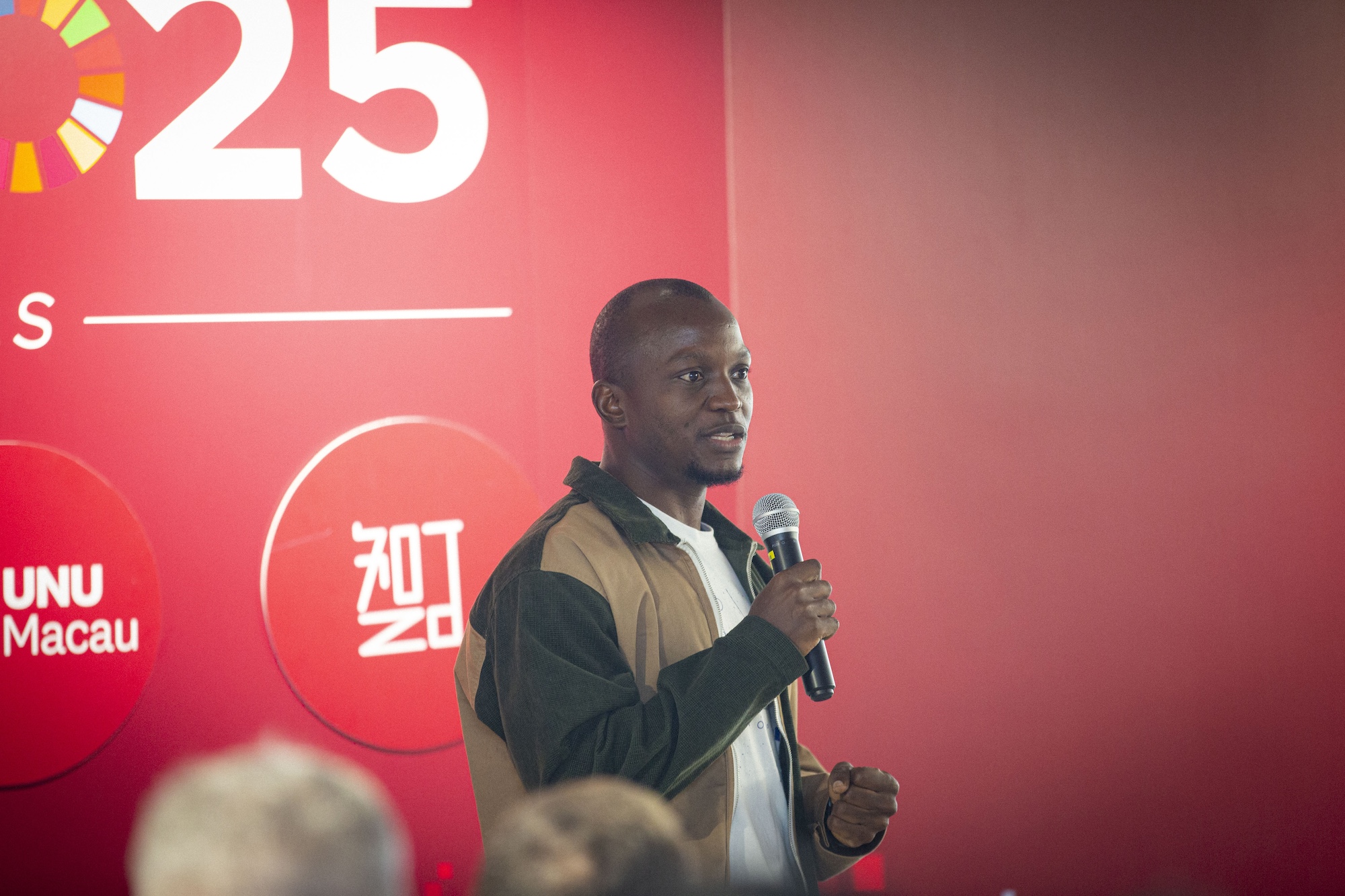
AI for Equity: Bridging Data Gaps for the Global Majority
Dr. Ronald Musizvingoza from UNU in Macau presented their work on synthetic data as a tool for inclusive AI development. Highlighting gender and regional disparities in data representation, they demonstrated how synthetic data can mitigate bias in healthcare, finance, and employment algorithms. “Synthetic data isn’t just technology—it’s justice for the underserved,” emphasized Dr. Musizvingoza. Their research supports SDG 5 (Gender Equality) and SDG 10 (Reduced Inequalities) by enabling low-resource regions to develop AI without reliance on exploitative data practices.
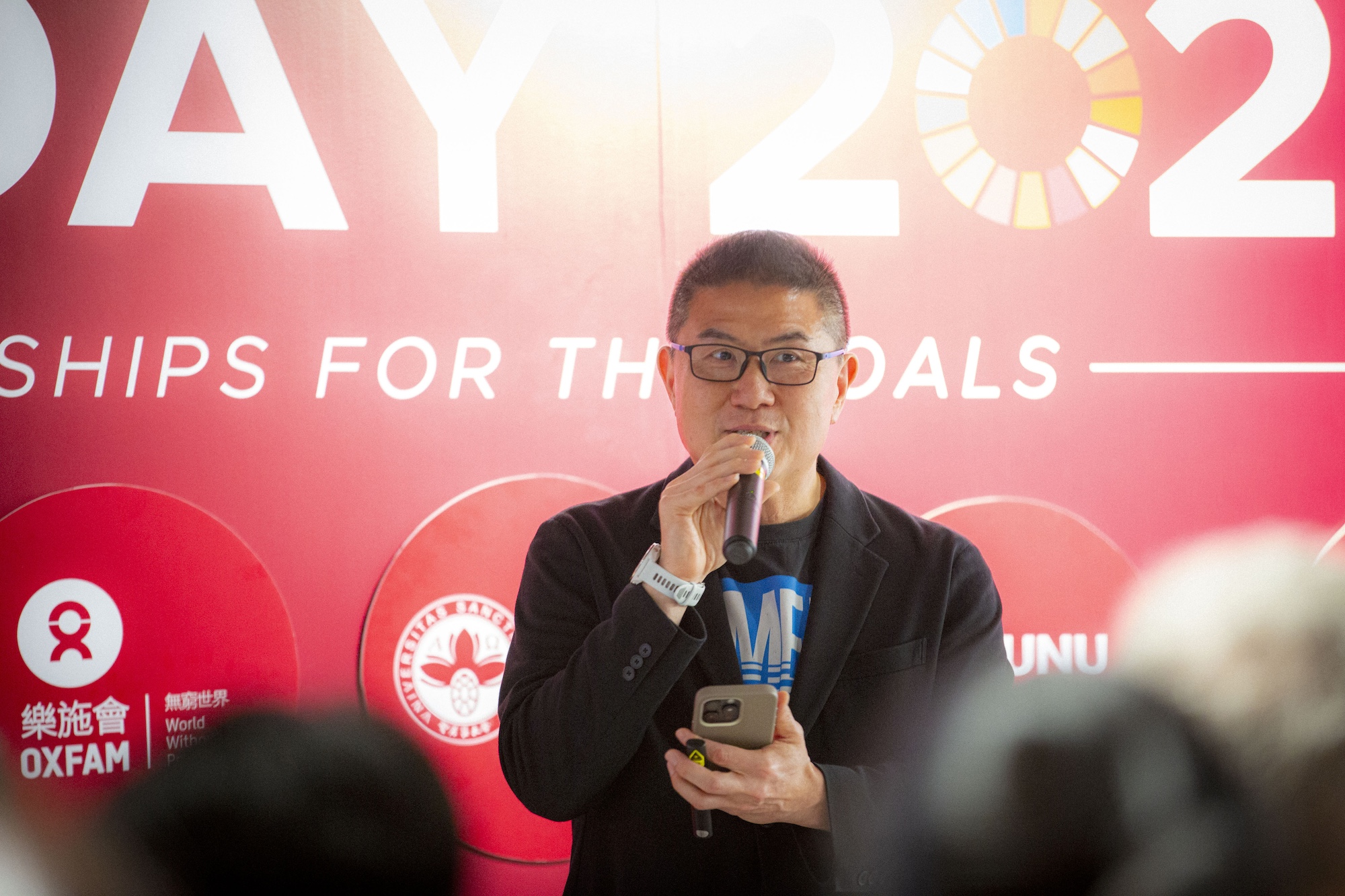
Social Entrepreneurship in Action: Wofoo S.I.T.E. and MedMind
Mr. Leo Chan, Chairman of Wofoo S.I.T.E., and Mr. Nathan Hui of MedMind Technology illustrated how social enterprises drive impactful partnerships. Wofoo’s Hong Kong Shared Good Values platform fosters cross-sector collaboration to address societal challenges, while MedMind’s gamified solutions promote elderly well-being and mental health. “Profit and purpose must go hand in hand,” stated Mr. Chan. MedMind’s partnerships with 300+ NGOs and corporations exemplify how technology can scale social impact.
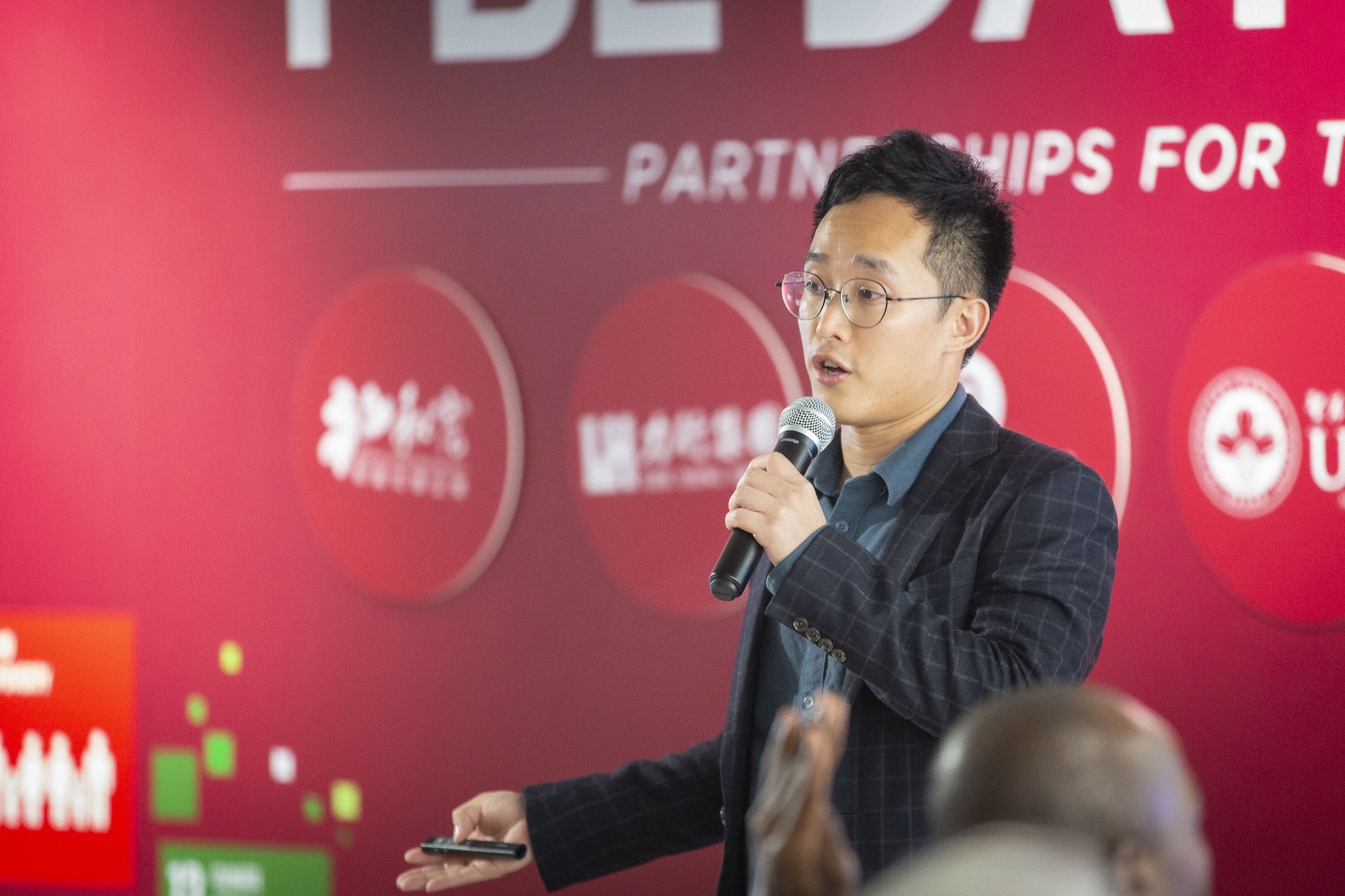
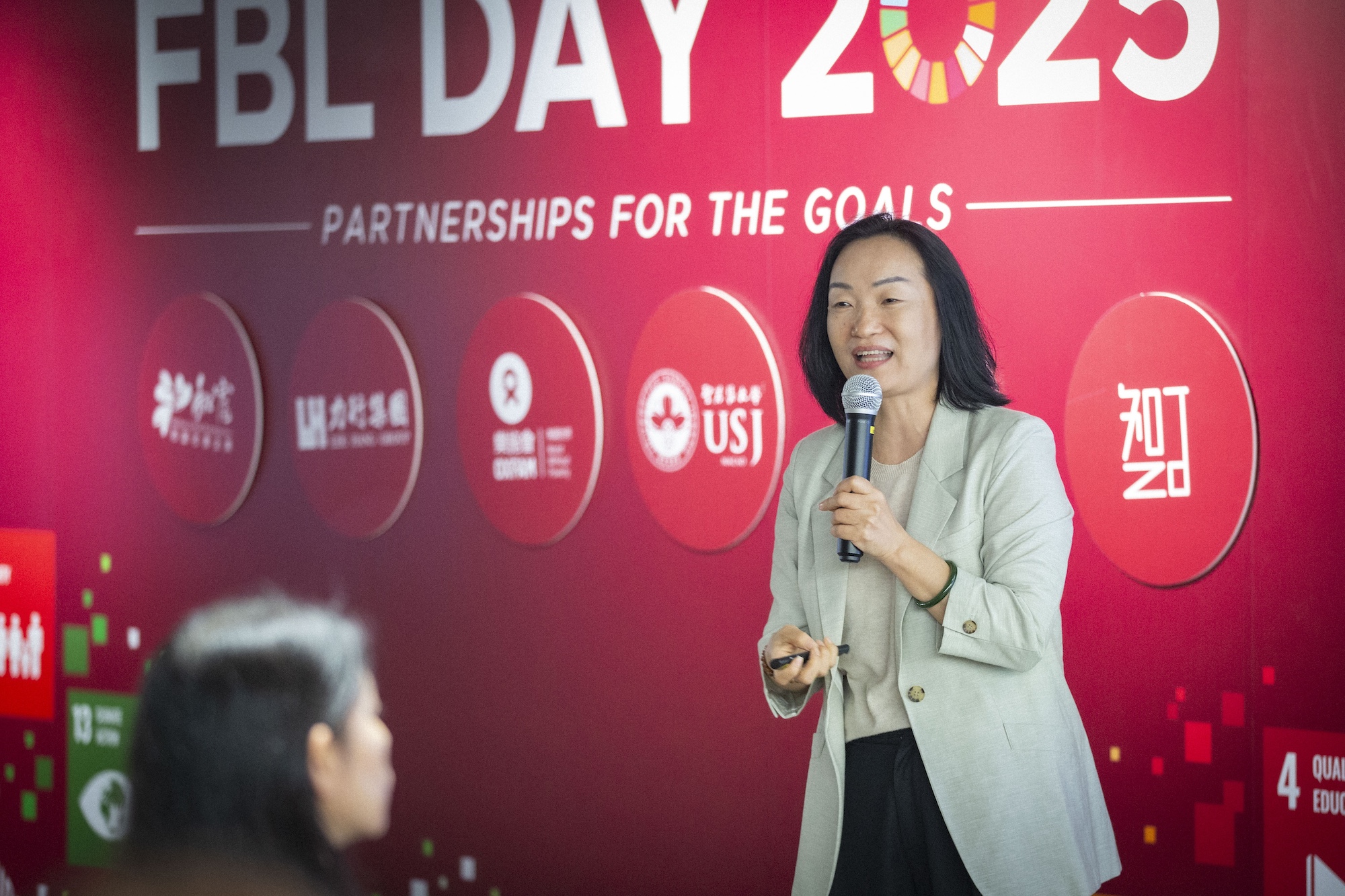
Industrial Innovation and Cultural Revival
Ms. Jing Chunying, President of Zhichai Innovation Research Institute outlined strategies for industrial culture revival, emphasizing design-led urban regeneration. Their work in Foshan and Guangdong aligns with SDG 9 (Industry, Innovation, and Infrastructure), transforming aging districts into vibrant economic hubs. She also showcased two successful revitalization case studies of old factories and districts. The first being the Guangdong Industrial Design City which was visited by President Xi in 2012 now boosts over 10000 industrial designers serving as the hub of guangdong design in the Shunde District in Foshan. The second case being Meitao Bay Area revitalization which focuses on the reapplication of ancient artisan ceramic history to develop new products and services catering to the current needs of the community. This in turn revitalize the community through environmental preservation and reduction in emissions via manufacturing, attracting related supply chain talent to create a cluster and transform the said areas into areas of replicable examples for others to follow.
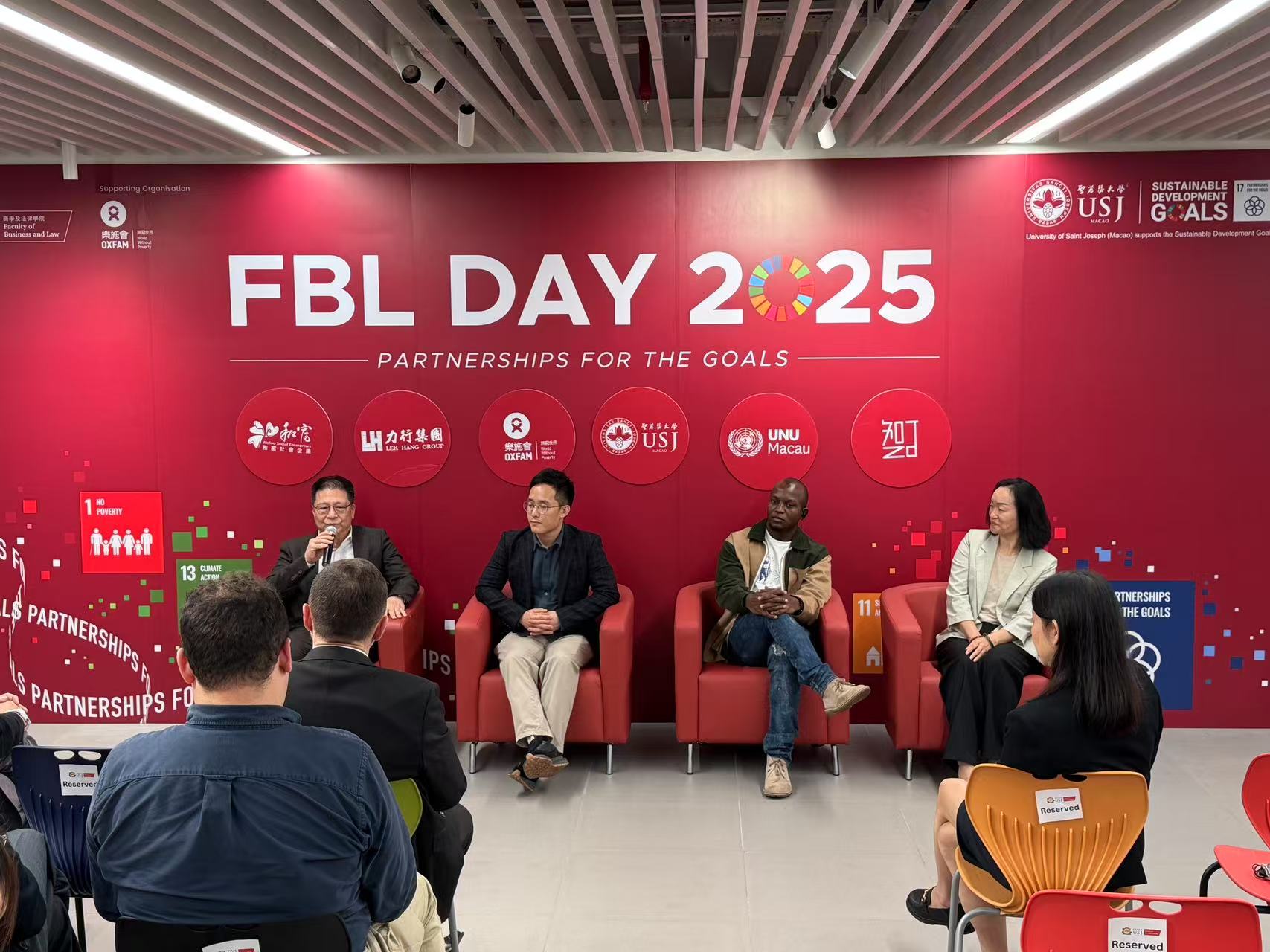
This year’s FBL day highlighted the power of partnerships to achieve the SDGs. From Macao’s historic renewal to AI ethics and social entrepreneurship, the event demonstrated that collaboration across sectors is key to building a sustainable and inclusive future. In addition, partnerships should be found not only in Macao but outreached to the Guangdong, Hong Kong and Macao Greater Bay Area. The Faculty of Business and Law at USJ integrates academic excellence with real-world impact, fostering leaders committed to ethical and sustainable development.








